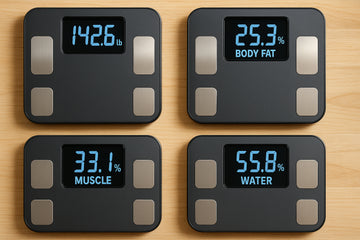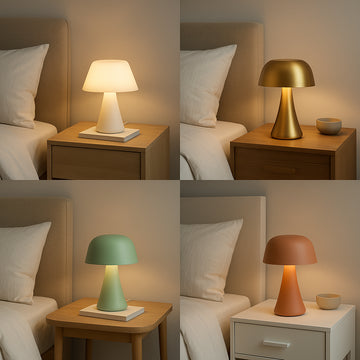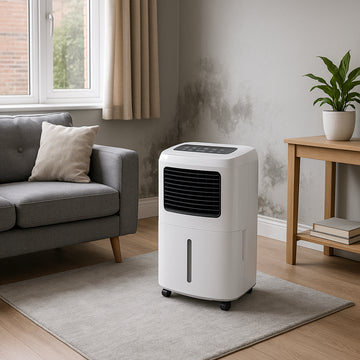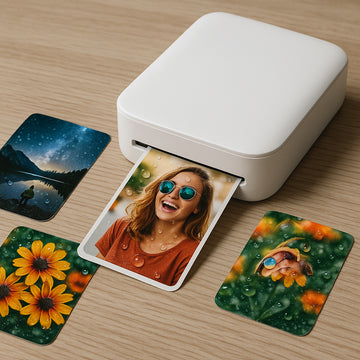A well-known fact about digital bathroom scales is that they can provide more than just weight measurements.
But what are they, exactly?
In this article, we’ll delve into how these smart devices analyze body fat and other vital metrics.
Some are equipped with Bluetooth, syncing data with your smartphone.
Some offer detailed body composition metrics like muscle mass and water weight.
Some can even track your metabolic rate over time.
And yes, some give daily reminders to keep you accountable.
Let's dive right in.
Understanding Digital Bathroom Scale Body Fat
Digital bathroom scales have undergone a remarkable transformation, evolving from simple weight trackers to sophisticated body composition analyzers. Most digital bathroom scales use a technology called bioelectrical impedance analysis (BIA) to estimate body fat percentage and other metrics. This method involves sending a low-level electrical current through the body, which measures the resistance this current encounters across different types of tissues.
We need to understand a few important points about body fat measurements:
- **Hydration Levels Matter**: Your hydration status can affect the accuracy of body fat readings. Being dehydrated can lead to an overestimation of body fat, while being overhydrated may result in an underestimation.
- **User Consistency**: For the best results, use the scale under consistent conditions—same time of day, similar hydration levels, and the same level of clothing.
- **Accuracy Variance**: Digital bathroom scales are generally self-calibrating, but lower-end models may deliver less accurate results. High-quality scales often have a lower error margin, usually under 5% (Verified with sources as of 2025-09-10).
Choosing the Right Digital Bathroom Scale
When selecting a digital bathroom scale, consider the following features to ensure you choose the right one for your health needs:
- Body Composition Metrics: Look for a scale that provides various metrics, including body fat percentage, muscle mass, and water weight.
- Smart Features: Many modern scales offer connectivity with mobile apps, allowing you to track your measurements and set health goals while gaining insights over time.
- User Profiles: If your household has multiple users, consider a scale that can support multiple profiles. This way, each person can monitor their own progress separately.
- Display Features: A bright, clear display will make it easier to read your data, especially for those early mornings when clarity matters most.
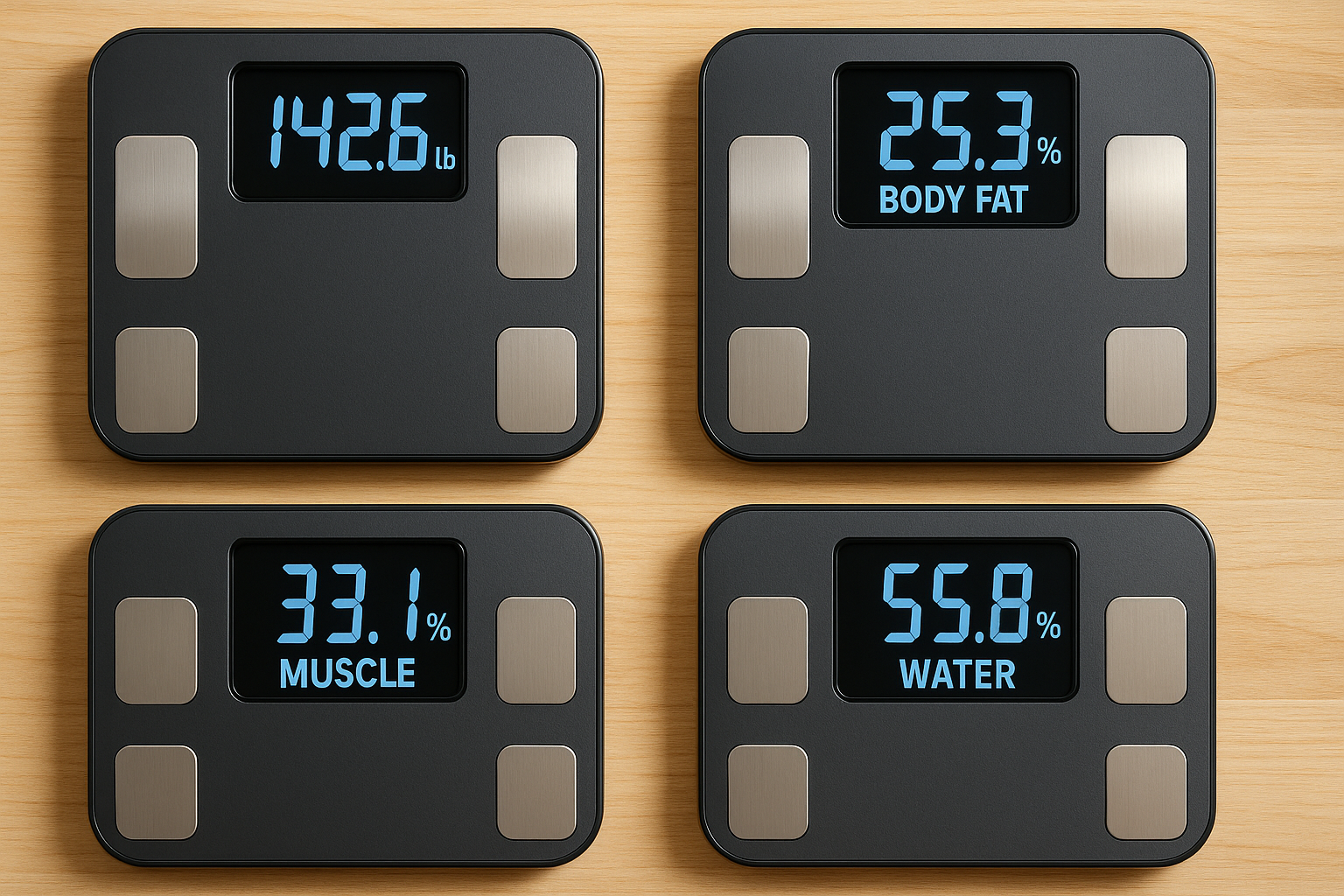
How to Use a Digital Bathroom Scale Effectively
Using a digital bathroom scale correctly is crucial for obtaining accurate readings:
- Place the Scale on a Level Surface: To ensure accurate readings, make sure your scale is on a flat surface. Uneven surfaces can lead to unreliable results.
- Step on Barefoot: To facilitate accurate resistance measurements, always use the scale without shoes or socks.
- Weigh at the Same Time Every Day: Many people find that their weight fluctuates throughout the day. Weighing yourself every morning, ideally after using the restroom but before eating or drinking, will produce more consistent results.
- Track Trends Over Time: Rather than focusing on individual readings, track your body fat percentage over time. This will give you a clearer picture of your health journey.
What to Expect from Body Fat Readings
When stepping on a digital bathroom scale that analyzes body fat, be prepared for some fluctuations. Body fat percentage can vary due to numerous factors:
- Dietary Intake: Changes in diet, particularly high sodium or carb intake, can cause water retention, affecting readings.
- Exercise: Intense workouts may lead to temporary weight loss due to fluid loss, which can also skew body fat estimates.
- Menstrual Cycle for Women: Hormonal changes during the menstrual cycle can cause significant weight and body fat percentage shifts.
Understanding Digital Scale Accuracy Issues
While accurate digital bathroom scales provide valuable insights, they aren't infallible. Studies have indicated several common accuracy issues:
- **Calibration Issues:** Regularly calibrating your scale can ensure accurate measurements.
- **User Error:** Incorrect usage or improper placement can lead to inaccurate results. Always follow the manufacturer's guidelines
- **Inherent Limitations of BIA:** While BIA is useful, medical-grade assessments, like DEXA scans, provide a more accurate body fat percentage but require specialized equipment.
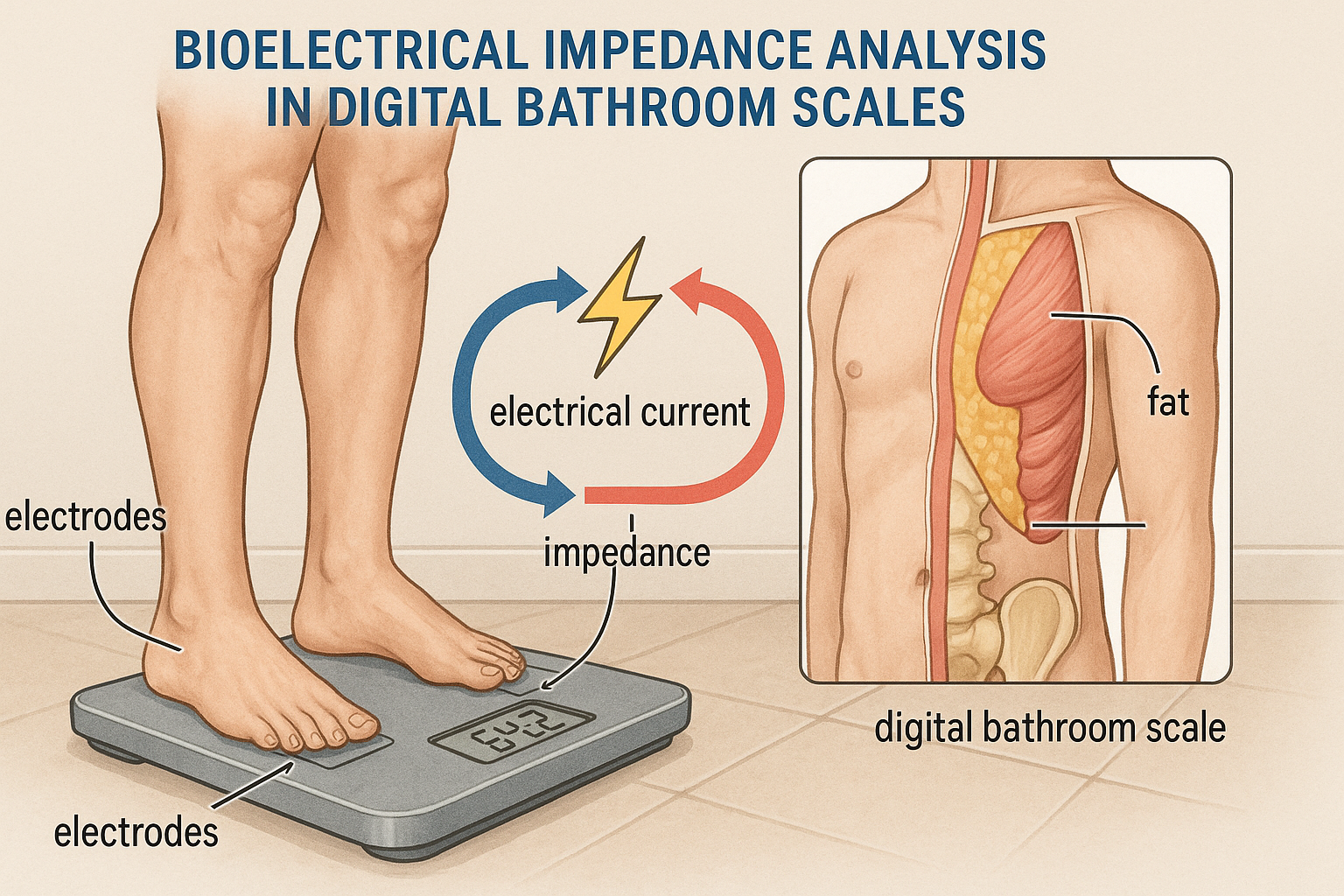
Best Digital Bathroom Scales for Body Fat Measurement
Not all digital scales are created equal. After testing various options, here are some top recommendations for digital bathroom scales that excel in body fat measurement:
The Withings Body+ Scale
The Withings Body+ scale is highly regarded for its comprehensive body composition metrics, including body fat, muscle mass, and water percentage. It features a user-friendly app that helps track your progress over time and is compatible with a variety of health and fitness apps. Plus, the Wi-Fi connectivity allows easy syncing of your data.
The RENPHO Smart Scale
This smart scale measures 13 different body composition metrics, including BMI and metabolic age. The RENPHO app integrates seamlessly with other health apps, making it easy to sync data across platforms.
The Etekcity Smart Fitness Scale
With 13 body composition measurements, Etekcity provides a plethora of data easily accessible via its app. This scale is also family-friendly, with modes to track baby growth.
For a comprehensive comparison of features across various brands of digital scales, check out our full guide on choosing the best options for your needs.
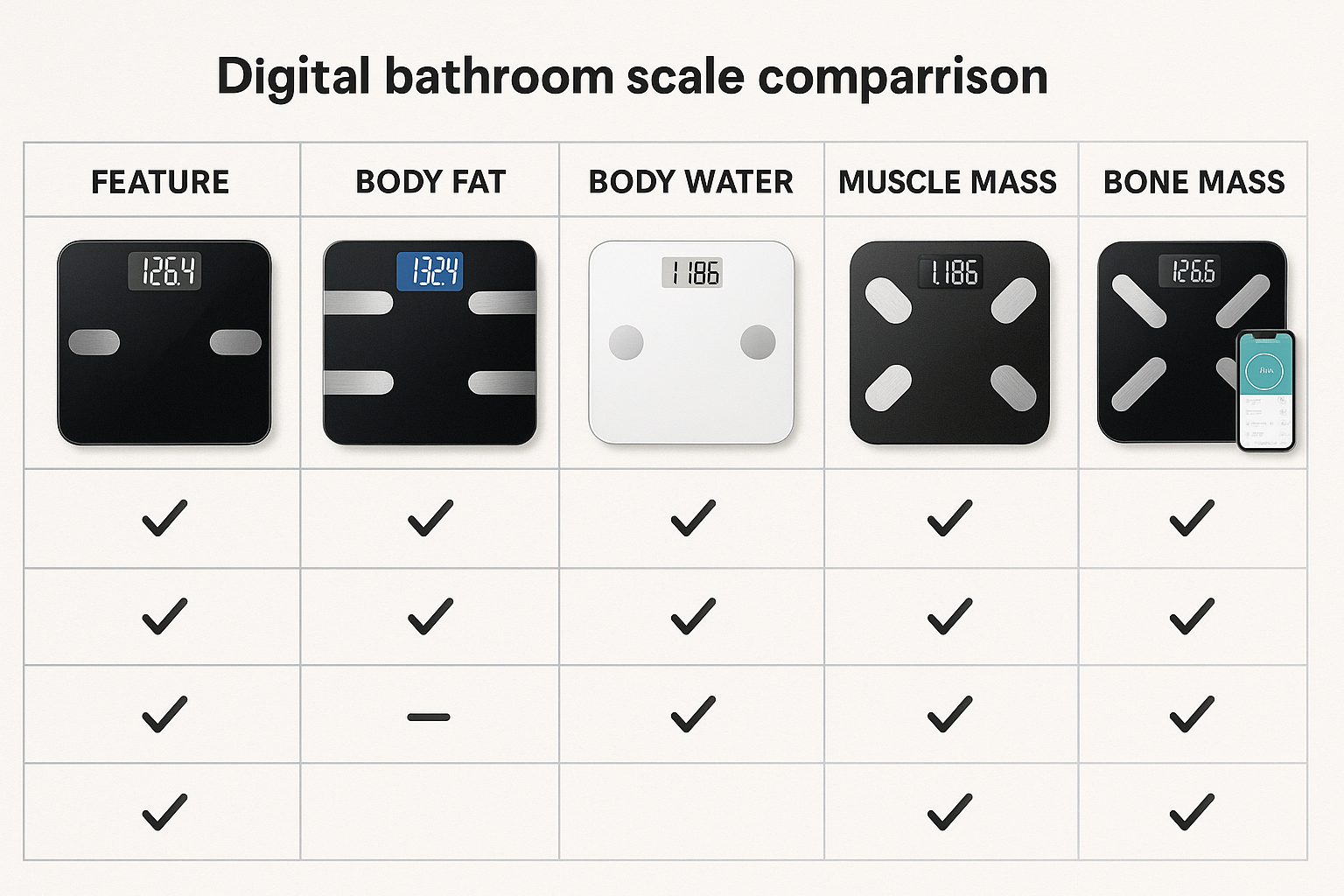
Frequently Asked Questions About Digital Bathroom Scales
How does a digital bathroom scale measure body fat?
Digital scales often use bioelectrical impedance analysis (BIA) to estimate body fat percentage. They deliver a small electrical signal through the body and measure how long it takes to return, analyzing resistance to determine body composition.
Are digital bathroom scales accurate?
While they provide helpful estimates, accuracy can vary based on multiple factors like hydration, user techniques, and the scale's quality. Medical-grade methods remain more reliable.
What can I do to improve the accuracy of my readings?
To enhance the accuracy of your scale, weigh yourself at the same time every day, avoid food and intensive exercise before weighing, and calibrate the scale regularly.
Watch a Demonstration
Check out this detailed video that explores several body fat scales and compares them with DEXA scans for accuracy:
Summary and Next Steps
In conclusion, digital bathroom scales provide valuable insights into your health journey by measuring body fat and more. Choose a scale that fits your needs, use it consistently, and track your progress.
What's Your Next Step?
Tell us in the comments: How will you apply this to your health journey? For personalized advice, contact us!


